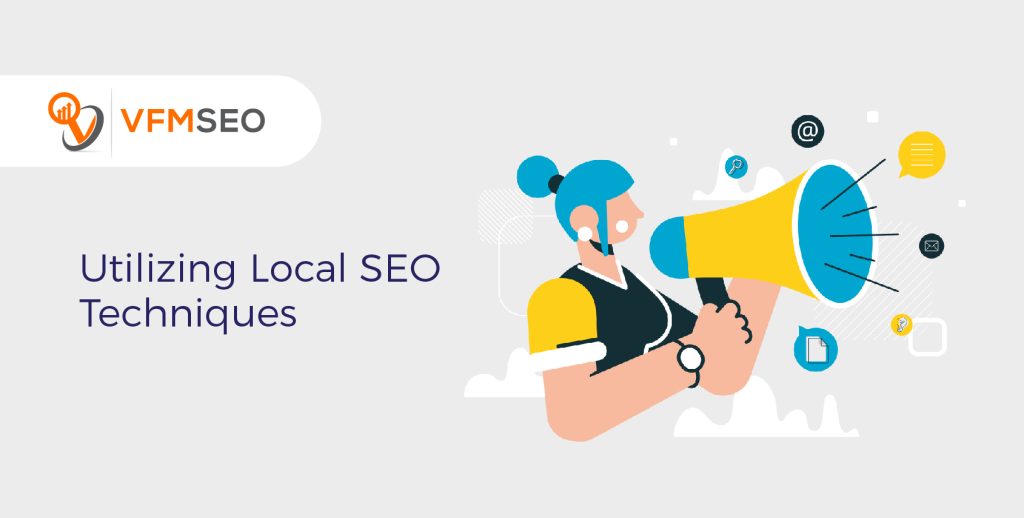
Off-Page SEO Services: Your Digital Footprint Beyond the Website
Off-page SEO services play a crucial role in enhancing a website’s visibility and search engine rankings. Unlike on-page SEO, which focuses on optimizing the content and structure of a website, off-page SEO refers to the actions taken outside of the website to improve its online presence.
This article will explore various off-page SEO strategies that can significantly impact a website’s performance in search engine results pages (SERPs). The strategies discussed include:
- – Building high-quality backlinks
- – Leveraging social media for SEO purposes
- – Implementing online reputation management techniques
- – Engaging in guest blogging and influencer outreach
- – Utilizing local SEO tactics.
By implementing these off-page SEO services effectively, websites can increase their visibility, attract more organic traffic, and ultimately improve their online success.
Building High-Quality Backlinks
The process of building high-quality backlinks involves strategically acquiring external links from reputable websites to improve the overall visibility and authority of a webpage. Backlinks are essentially incoming hyperlinks that direct users from one webpage to another.
In the context of search engine optimization (SEO), backlinks play a crucial role in determining the relevance and importance of a webpage. Search engines, such as Google, consider backlinks as a signal of trust and authority. Therefore, websites with a higher number of quality backlinks tend to rank higher in search engine results pages.
To build high-quality backlinks, it is essential to focus on reputable and authoritative websites. These websites are often recognized for their quality content, strong online presence, and high domain authority. Acquiring backlinks from such websites not only increases the visibility of a webpage but also enhances its credibility and reputation. It is important to note that not all backlinks are created equal. Search engines prioritize backlinks from relevant and authoritative sources over irrelevant or spammy websites. Hence, the quality of backlinks is crucial in determining their effectiveness in improving search engine rankings.
There are various strategies for building high-quality backlinks. One approach involves creating valuable and shareable content that naturally attracts links from other websites. This can be achieved by publishing informative articles, research papers, or blog posts that provide unique insights or solutions to common problems. Additionally, engaging in outreach activities and building relationships with influential bloggers or industry experts can help in acquiring organic backlinks. Collaborating with reputable websites through guest blogging or contributing articles can also be an effective way to acquire high-quality backlinks.
Building high-quality backlinks is a fundamental aspect of off-page SEO. It involves acquiring external links from reputable and authoritative websites to improve the visibility, trustworthiness, and authority of a webpage. By employing strategies such as creating valuable content and engaging in outreach activities, website owners can enhance their search engine rankings and attract organic traffic.
Leveraging Social Media for SEO

Social media platforms can be effectively utilized to enhance search engine optimization (SEO) strategies. As an integral part of off-page SEO services, leveraging social media can contribute to improving a website’s visibility and search engine rankings.
One way social media can benefit SEO is through increased website traffic. By sharing content on platforms such as Facebook, Twitter, and Instagram, businesses can attract more visitors to their websites. This increased traffic can signal to search engines that the website is popular and relevant, leading to higher rankings in search results.
Additionally, social media platforms provide opportunities for users to engage with the content, share it with others, and leave comments. These interactions can further boost the website’s visibility and potentially generate valuable backlinks.
Furthermore, social media can help businesses build brand authority and credibility. By consistently sharing high-quality and informative content, companies can establish themselves as industry leaders and trusted sources of information. This can lead to an increase in followers, engagement, and ultimately, improved search engine rankings. Search engines prioritize websites that are deemed authoritative and trustworthy, making social media an essential tool for building this reputation.
Moreover, social media can assist in fostering relationships with influencers and industry leaders. By engaging with these individuals or organizations through social media platforms, businesses can increase their chances of gaining valuable backlinks. Influencers and industry leaders often have a significant online presence, and their endorsements can greatly impact a website’s credibility and visibility to search engines.
Leveraging social media platforms as part of off-page SEO services can be highly beneficial. It can help drive website traffic, build brand authority, and establish relationships with influential figures in the industry. By incorporating social media into their SEO strategies, businesses can improve their search engine rankings and overall online presence.
Online Reputation Management Strategies
Online reputation management strategies are crucial for businesses to maintain a positive image and preserve their credibility in the digital landscape. With the rise of social media and online review platforms, it has become increasingly important for businesses to actively monitor and address their online reputation.
There are several strategies that businesses can employ to manage their online reputation effectively.
Firstly, businesses should regularly monitor online platforms and social media channels to stay informed about what is being said about their brand. This can be done through the use of social listening tools that track mentions and discussions related to the business. By staying aware of what is being said, businesses can quickly respond to any negative comments or reviews and address any issues that may arise.
Secondly, businesses should actively engage with their audience and respond to both positive and negative feedback. By acknowledging and addressing customer concerns, businesses can demonstrate their commitment to customer satisfaction and show that they value their customers’ opinions. This can help to build trust and credibility with both existing and potential customers.
Another strategy is to encourage and incentivize customers to leave positive reviews. Positive reviews can help to counterbalance any negative feedback and improve the overall reputation of the business. Businesses can do this by offering discounts or rewards for leaving a review, or by simply asking satisfied customers to share their positive experiences online.
Additionally, businesses should regularly update and optimize their online profiles and websites to ensure that accurate and positive information is easily accessible to potential customers. This includes maintaining consistent branding, providing up-to-date contact information, and showcasing positive customer testimonials.
Overall, effective online reputation management strategies are essential for businesses to maintain a positive image and preserve their credibility in the digital landscape. By actively monitoring, engaging with customers, and encouraging positive reviews, businesses can build a strong online reputation that helps to attract and retain customers.
Guest Blogging and Influencer Outreach

Guest blogging and influencer outreach are effective strategies for expanding a business’s online presence and gaining exposure to a wider audience.
Guest blogging involves creating high-quality content and publishing it on other websites or blogs that are relevant to the business’s niche. This allows the business to tap into the existing audience of the host website and establish itself as an authority in the industry. By providing valuable and informative content, guest bloggers can attract the attention of readers who may then visit the business’s website or social media profiles.
Influencer outreach, on the other hand, involves collaborating with influential individuals who have a large following on social media platforms or their own blogs. These influencers can help promote the business’s products or services to their followers, who trust their recommendations and opinions. This can significantly increase the business’s visibility and reach a wider audience that may not have been aware of its existence otherwise.
Both guest blogging and influencer outreach can also contribute to improving a business’s search engine rankings. When high-quality content is published on reputable websites or shared by influential individuals, it can generate backlinks to the business’s website. Backlinks are an important ranking factor for search engines, as they indicate the credibility and relevance of a website. By obtaining backlinks from reputable sources, the business’s website can improve its search engine visibility and attract more organic traffic.
Guest blogging and influencer outreach are valuable strategies for expanding a business’s online presence and reaching a wider audience. These tactics can help businesses establish authority in their industry, increase visibility, and improve search engine rankings. By leveraging the existing audiences of host websites and influential individuals, businesses can effectively promote their products or services and attract potential customers.
Utilizing Local SEO Techniques

Utilizing targeted local SEO techniques can significantly enhance a business’s visibility within its geographic location, allowing it to connect with potential customers who are specifically searching for products or services in that area. Local SEO refers to the process of optimizing a website to rank higher in local search engine results. This involves incorporating location-specific keywords, creating location-based content, and optimizing the website for mobile devices.
One effective local SEO technique is to include the business’s address, phone number, and other contact information on every page of the website. This not only helps search engines understand the business’s location but also provides potential customers with easy access to contact information.
Another technique is to claim and optimize the business’s Google My Business listing. This allows the business to appear in Google’s ‘Local Pack,’ which is a prominent display of local businesses that appear at the top of search engine results pages. Optimizing the Google My Business listing involves providing accurate and detailed information about the business, such as opening hours, photos, and customer reviews.
Additionally, creating location-specific landing pages can improve a business’s visibility in local search results. These pages should contain relevant keywords, as well as information about the business’s location, products or services offered, and any special promotions or events.
It is also crucial to optimize the website for mobile devices, as mobile searches are becoming increasingly prevalent. This includes ensuring that the website is mobile-friendly, loads quickly, and displays correctly on different screen sizes.
By implementing these targeted local SEO techniques, businesses can increase their visibility within their geographic location and attract potential customers who are actively searching for products or services in that area. This can lead to higher website traffic, increased brand awareness, and ultimately, more sales and revenue.
FAQs
How long does it typically take for off-page SEO efforts to start showing results?
Typically, it takes a certain amount of time for off-page SEO efforts to yield noticeable results. The duration can vary depending on various factors such as the competitiveness of the keywords, the quality of backlinks, and the frequency of off-page optimization activities.
Are there any risks or potential negative consequences associated with building high-quality backlinks?
Building high-quality backlinks can come with potential risks and negative consequences. These may include penalties from search engines for engaging in manipulative link-building practices or associating with low-quality or spammy websites, negatively impacting the website’s rankings and reputation.
How can social media platforms be effectively utilized to improve SEO rankings?
Social media platforms can enhance SEO rankings through various strategies such as creating engaging content, sharing website links, and increasing user engagement. These tactics can improve visibility, generate backlinks, and drive organic traffic to a website, ultimately boosting its search engine rankings.
What are some common challenges or obstacles that businesses face when managing their online reputation?
Common challenges businesses face when managing their online reputation include negative reviews and comments, lack of control over online content, difficulty in monitoring and responding to feedback, brand impersonation, and the need for a proactive reputation management strategy.
Are there any specific guidelines or best practices to follow when engaging in guest blogging and influencer outreach?
When engaging in guest blogging and influencer outreach, it is important to follow specific guidelines and best practices. These may include conducting thorough research, establishing clear objectives, maintaining transparency, and building genuine relationships with influencers and bloggers in the industry.
Conclusion
In conclusion, off-page SEO services play a crucial role in improving website visibility and rankings in search engine results.
Through building high-quality backlinks, leveraging social media, implementing online reputation management strategies, guest blogging, influencer outreach, and utilizing local SEO techniques, businesses can enhance their online presence and attract more organic traffic.

